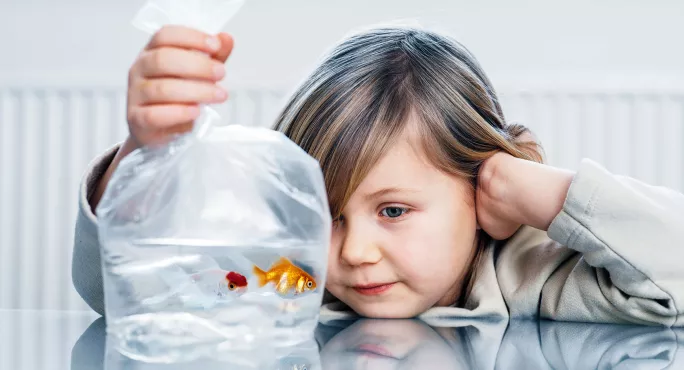8 in 10 teachers say pupils’ attention is worse since pandemic

More than eight in 10 primary school teachers said “pupil inattention” has worsened since the Covid pandemic, a new survey has shown.
While seven in 10 said that behaviour is getting worse and 85 per cent said they are also having to deal with an increase in low-level disruption, which includes “needless chatter, shouting out during teacher instruction and laughing inappropriately”.
When asked about life in the classroom post-Covid, 70 per cent of primary school teachers said that children’s classroom behaviour has continued to worsen.
While 84 per cent said that the attention span of pupils is shorter than it was pre-pandemic and 57 per cent think that children are quicker than ever to complain about being bored.
Since returning to school, 69 per cent said that they have seen an increase in inattention and daydreaming among pupils, while 54 per cent believe children’s “apathy and a general disinclination to participate in lessons” has increased.
Some 57 per cent think children find it harder to stay seated, and 55 per cent said that children are now more likely to annoy and provoke others during class.
- Behaviour: DfE warned about promoting ‘punitive’ approach
- Gilruth: Staff facing ‘extreme’ behaviour need better support
- Analysis: What’s the ‘right’ approach to pupil behaviour?
The research was commissioned by Kapow Primary, which provides curriculums for foundation subjects. Online fieldwork was undertaken between late April and early May this year.
Despite platforms such as TikTok not officially being accessible to those of primary school age, 85 per cent of teachers think that it is the “ever-swiping nature” of social media that has negatively affected pupils’ attention span and concentration, the research found.
One in five (20 per cent) teachers report that they spend less than 10 minutes on any single activity to maintain their children’s attention.
A Year 5 and 6 teacher at a Derbyshire primary school with 420 children said: “Behaviour in class is very different post-Covid. We had to teach the children through a screen during the pandemic, but taking the screen away now has had a massive impact.
“Daydreaming is a big issue for us, as is helping children re-learn some of their social skills. Little things like turn-taking got lost during Covid. We also have to do a lot more movement breaks to avoid the children from tuning out.”
Another teacher, working at an east London primary with 700 pupils, said: “There is a very observable difference in ‘classroom etiquette’. Some children appear to have lost skills such as collaborating with and being considerate to and respectful of others. These are skills that we would have taken for granted or seen as something to be taught in nursery and Reception.
“The conduct of many children in assemblies has been particularly symptomatic. Some have lost the ability to sit as part of a large audience and focus on a message being shared with the whole school.”
Commenting on the findings, Vicky Cottrill-Gray, education content director at Kapow Primary, said: “Children lost so much in-school time during the pandemic. When they went back, they brought new behavioural challenges with them that teachers are still having to deal with.
“There are lots of possible remedies to improve the learning atmosphere and help classrooms remain calm. And finding novel ways to reengage children with learning is always going to be the most productive way to handle disruptive behaviour.”
‘Long-term impact’
Tiffnie Harris, primary and data policy specialist at the Association of School and College Leaders, said the findings chime with what the union was hearing from its members.
She said: “It appears that behaviour has become more challenging among some pupils and that this is caused by a number of factors. There seems to be a long-term impact of the disruption of the pandemic on normal routines and expectations.
“On top of this is the rising incidence of mental health and wellbeing problems among children, which is exacerbated by the impact of the cost-of-living crisis on families and the pressures created by social media.
“Social media companies are not supposed to allow young children on to these platforms, but these systems don’t seem to be very well policed and, in reality, many children do access them during their leisure time when they are out of school and can end up in situations where they are exposed to inappropriate material and online bullying and peer pressure.
“It really is beyond time that the social media companies put their house in order and that the government enacted its long-awaited and much-delayed Online Safety Bill.
“The government must also do much more to understand the problems around behaviour and provide more investment and support to schools and families.”
A Department for Education spokesperson said: “Our approach to tackling behaviour in schools has been to support schools to develop a behaviour culture that works for them, their pupils and their communities.
“We have updated our Behaviour in Schools guidance to provide clear advice on how to create and maintain high standards and our £10 million Behaviour Hubs programme is supporting up to 700 schools to improve behaviour.”
The survey of primary school and early years teachers was carried out between April and May this year by Gerard Kelly and Partners.
Register with Tes and you can read two free articles every month plus you'll have access to our range of award-winning newsletters.
topics in this article



